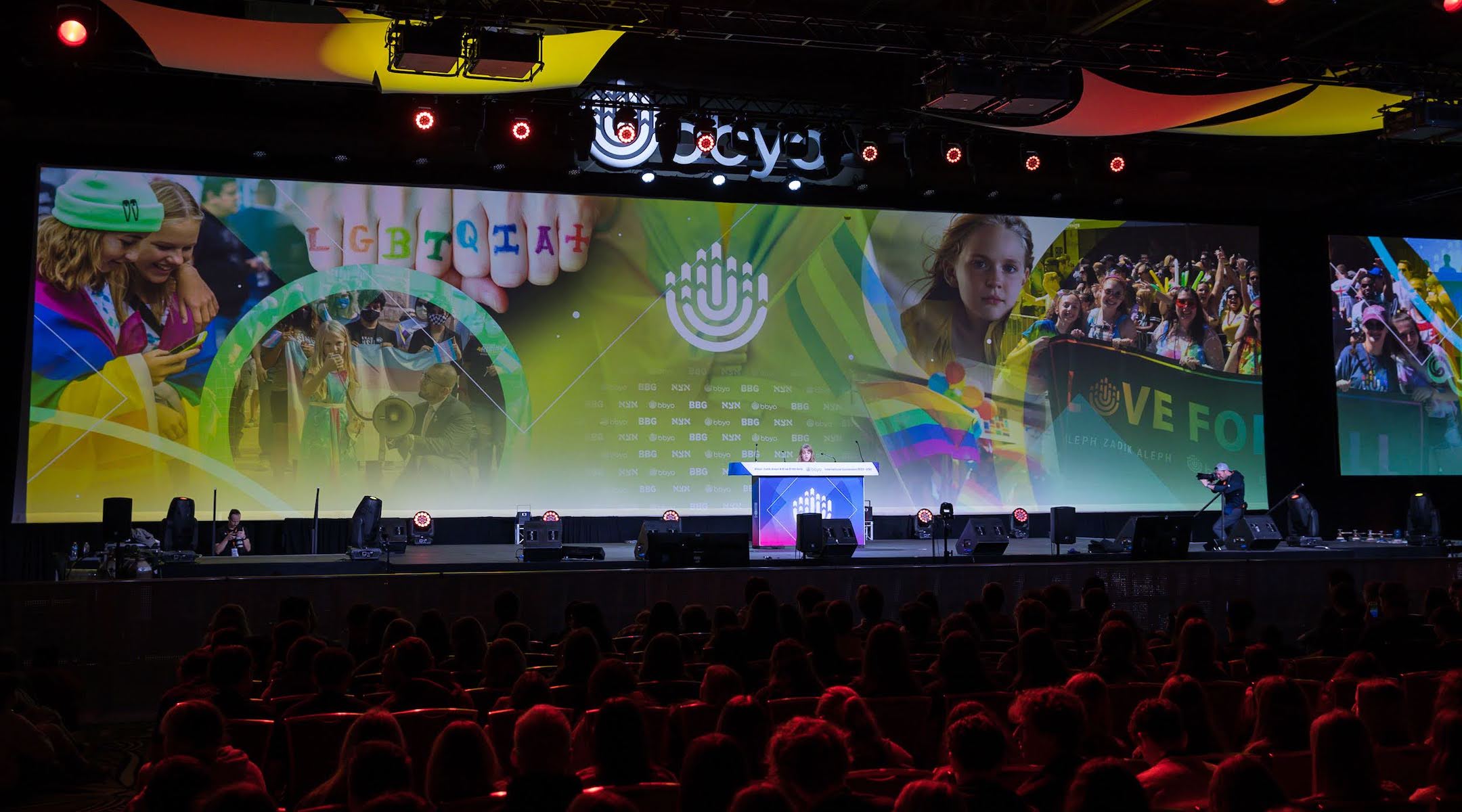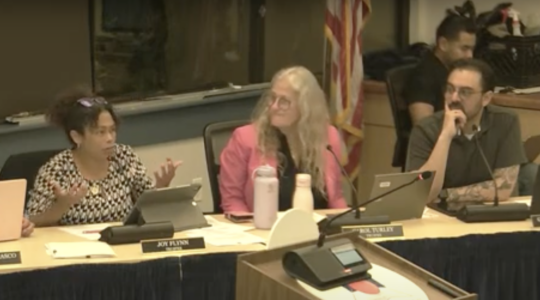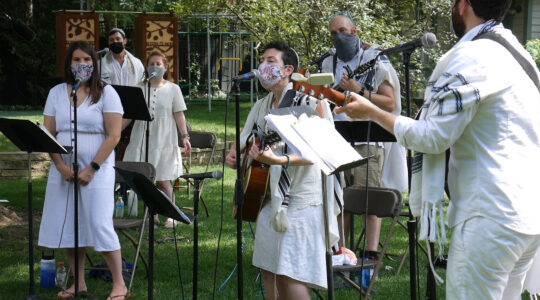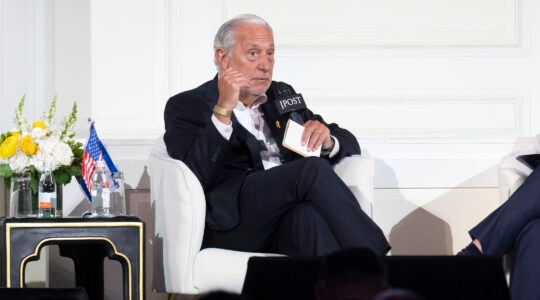(JTA) – Pride Month can be a busy time for Abby Stein, the trans Jewish author and activist. But she recently turned down an invitation to serve as a scholar in residence during a Pride Shabbat.
That’s because the event was in Florida, where lawmakers have recently enacted laws prohibiting medical care for trans youth, sharply restricting discussion of gender and sexuality in school and banning trans people from using the bathroom that corresponds to their gender identity.
“I could literally get arrested in the airport for using the wrong bathroom,” said Stein, who is based in New York City.
So when she learned that BBYO, one of the world’s largest Jewish youth movements formerly known as the B’nai Brith Youth Organization, was planning to hold its upcoming 100th anniversary convention in Orlando, Stein’s message was unequivocal: “They shouldn’t do that.”
“They should move it,” Stein told the Jewish Telegraphic Agency recently, during a Pride Shabbat event outside Detroit, where she was a guest speaker. “One hundred percent, they should move it.”
Stein’s instinct put her in line with multiple LGBTQ advocacy groups including the Human Rights Campaign and Equality Florida, which both have issued travel advisories warning their constituencies that the state’s climate had become hostile to them. And it reflects one side of an emerging debate among LGBTQ Jews and their allies when it comes to Florida: Should they protest Florida’s anti-LGBTQ laws — and protect themselves — by avoiding the state? Or is continuing to make their presence felt a more useful strategy in turning the political tides?
A leading Jewish LGBTQ advocacy group, Keshet, has not issued a travel warning. Jon Cohen, its director of community mobilization, says the group does not see such advisories as part of its purview — but he said that he, as one of two Keshet staffers who live Florida, was glad the BBYO convention was headed to his state.
“I think that BBYO coming to Orlando is great,” Cohen said. “And while they’re in Orlando, it would be great for them to bring in these LGBTQ activists and advocates to teach the staff and the participants about what is going on, why it’s Jewish to care, why it’s Jewish to fight back.”
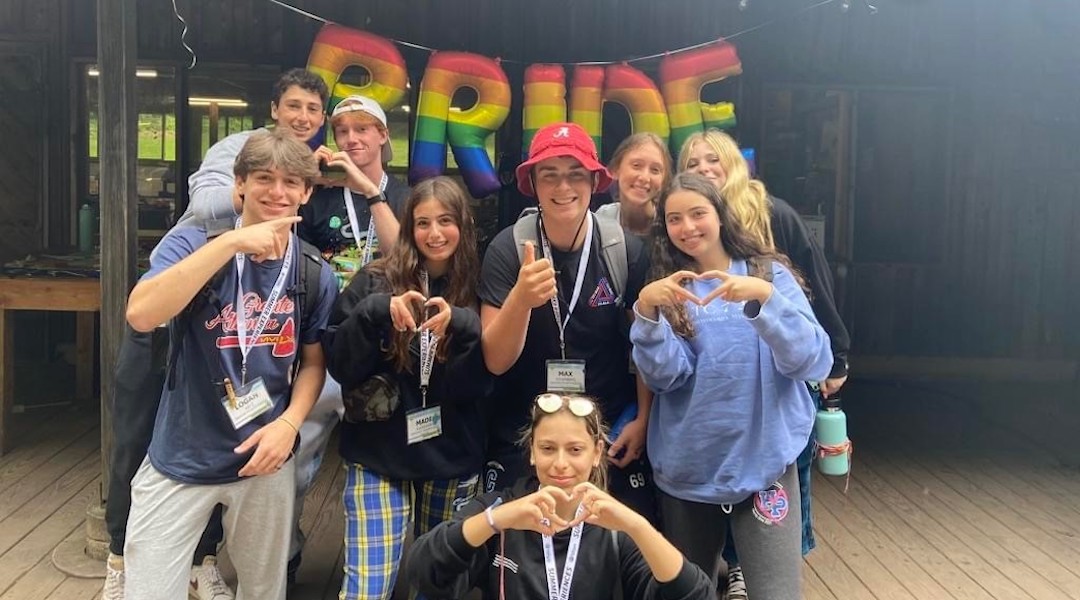
BBYO teenagers at a Pride Month-themed summer leadership program, June 2022. (Courtesy of BBYO)
For BBYO, which announced Orlando as its 2024 convention location about a year in advance of the conference next February, the answer is clear.
“We see it as an opportunity to bring attention, to educate, to inform, to help really push our teens to think about difficult things,” Drew Fidler, director of the organization’s center for adolescent wellness, told JTA about the Florida location. “It’s important to be there.”
The organization, which has 21,000 members across North America and more abroad, draws thousands of teens from all over the world to its conventions — and the centennial celebration could be even bigger. That gives it a potentially potent voice at a time of political discord.
Boycotts of other state laws targeting LGBTQ people have led to change. When North Carolina lawmakers passed a law in 2016 barring trans people from using the bathroom corresponding to their gender, several major events were relocated from the state by their organizers in protest. Companies scrapped their plans to add jobs in North Carolina, the NCAA relocated its championship games and celebrities canceled their concerts —costing an estimated $3.6 billion in lost revenue over a decade. Responding to the backlash, the state legislature mitigated the bill.
Less than a decade later, much more stringent laws are going onto the books in Florida and other states amid a wave of anti-LGBTQ legislation advanced by Republicans, including Florida Gov. Ron DeSantis, who is currently running for president.
The NAACP called for an economic boycott of North Carolina in 2016, and this year, it issued a travel advisory warning based on policies and legislation that, the group says, harm Black people. A spokesperson for the Anti-Defamation League, the Jewish civil rights group, declined to comment on the Florida advisory put out by the NAACP, with which the ADL has partnered on civil rights campaigns in the past, though last month the ADL’s Florida chapter said it was “disappointed” that DeSantis had signed bills that it said “codified racism, homophobia and transphobia into law.”
Senior staff at BBYO said hosting the convention in Florida is in keeping with the organization’s mission, not a departure from it. Plus, they noted, Florida — with its massive Jewish population — has the second-largest number of active BBYO members of any state.
“We’re not going to just abandon that community because they are in Florida,” said Hillary Lakin, the organization’s director of convention operations.
About 1% of BBYO’s teens self-identify as trans, nonbinary, gender-fluid or genderqueer, according to the organization. Some of them told JTA that they understood the challenge facing their youth group.
Marissa McLain, a nonbinary rising senior from Kansas City, said Florida’s new laws place “a damper” on the convention’s location.
“It makes it scary for LGBTQ teens to travel to a place that is unsafe for them,” McLain said. But, they added, “I think if they do it right they could provide a meaningful experience for teens.”
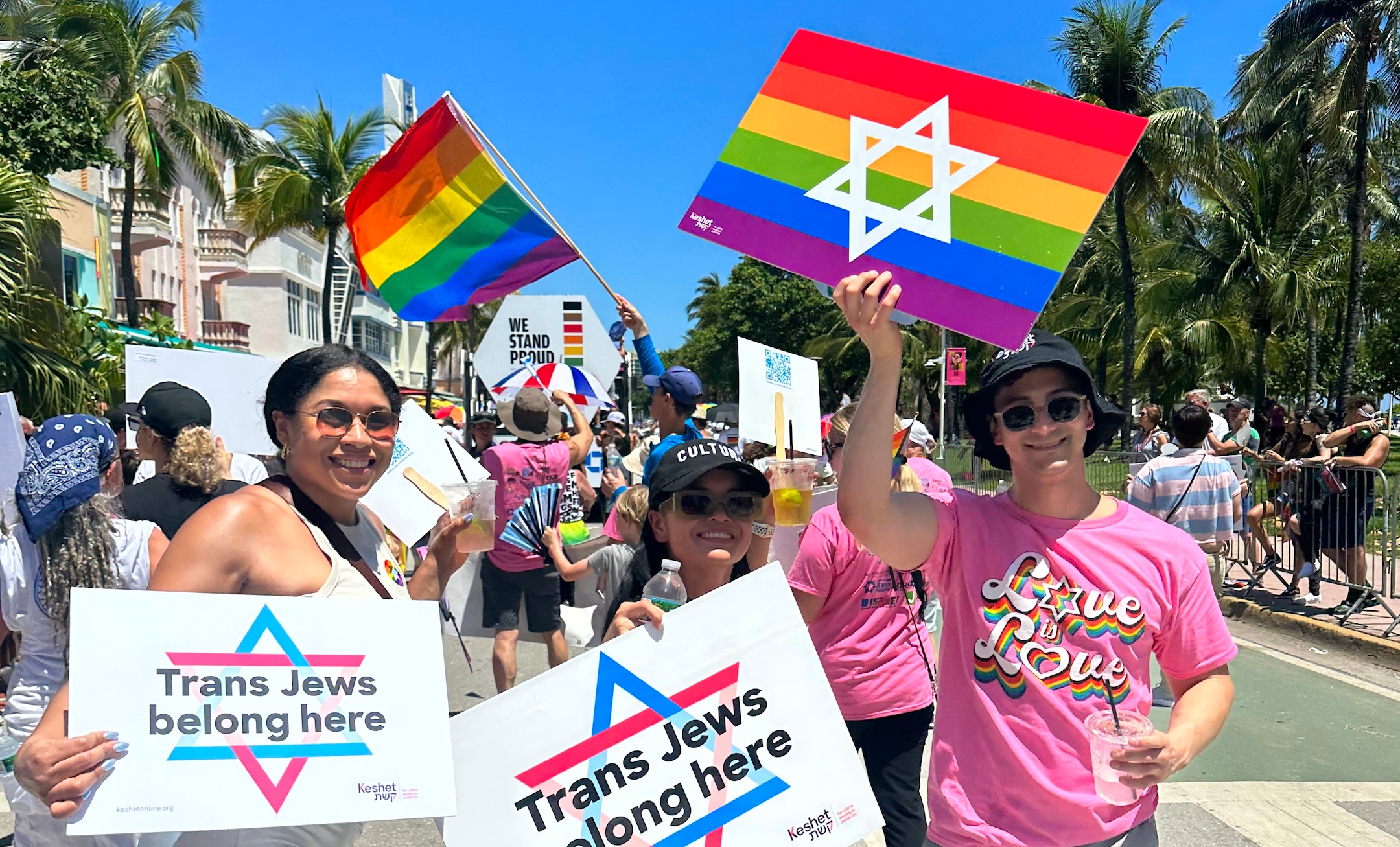
Members of Keshet, LGBTQ Jews and allies march at a Pride event, Miami Beach, Fla., June 2023. (Courtesy of Jon Cohen)
BBYO will be taking precautions to ensure that its participants and activities are shielded from Florida’s new laws, Lakin said. As in years past, organizers are not revealing the exact location of the convention, beyond the city where it will take place. There will be gender-neutral bathrooms onsite, and organizers have verified with the hotel they’re renting that BBYO will have sole discretion over restrooms used by attendees.
The 2024 conference schedule hasn’t been finalized, but BBYO’s past programming has sought to include LGBTQ teens and addressed threats to LGBTQ rights.
The most recent international BBYO convention took place in Texas, another state where lawmakers have recently passed legislation targeting LGBTQ youth and their parents. More than 3,000 teens attended, and the convention included sessions on LGBTQ activism, as well as a plenary by young trans activist Kai Shappley, whose family had fled Texas the previous year because of the state’s new laws. In 2020, BBYO co-sponsored a virtual talk by Jewish drag queen Sasha Velour; in the years since, state laws and parent activists have specifically targeted drag shows viewed by minors.
For Cohen at Keshet, having thousands of Jewish teens crowd into his state for BBYO’s convention gives him something to look forward to at a difficult time.
“The wins have felt few and far between lately, and there have been people telling me to leave Florida,” he wrote in a recent blog post. “Respectfully, I am not leaving. I can’t be legislated away. Florida is my home and I intend to stay and continue to fight with the powerful, inclusive, and loving Jewish community that I have grown up with and continue to build.”
Keshet is seeking to mobilize Jews to oppose legislation targeting LGBTQ people, not only in Florida but nationally. Cohen recently spoke at a meeting in Florida of leaders of the Jewish Federations of North America, the umbrella group for local Jewish federations. And at the Detroit Pride Shabbat event where Stein spoke, pamphlets put out by the group read, “Talking About Anti-Trans Legislation Through a Jewish Lens.”
“I think that the energy and the focus at this moment should be on the danger — like, push back, fight back,” Stein told JTA.
Cohen is trying to stay optimistic, pointing to what he classifies as Keshet’s legislative successes in Florida: instances when, thanks in part to the group’s advocacy, legislation targeting LGBTQ people was softened.
Drafts of the recently signed bills all included provisions that were farther-reaching but were dropped after public pushback, including proposals to prevent trans people from changing their birth certificates, prohibit private insurers from providing coverage for trans healthcare, forcibly detransition any trans minors receiving medical care and prevent Pride flags from being flown in government buildings.
But Cohen, who is getting married this summer, acknowledged that the prospects in his state for LGBTQ Jewish families seemed bleak. Despite his intention to stay in Florida, he could see a future where he, too, packs his bags.
“If my future husband and I wanted to have children, I would likely not do that in Florida because of the anti-LGBTQ legislation,” he said. “I would just pragmatically look into options of leaving. And that’s sad. Like, that’s really sad.”
For now, though, he is staying put — and so is BBYO’s convention, with teens from across the country preparing to attend in February, some with mixed feelings.
“Other than the politics, it’s such a fun state,” Sammy Robertson, a high school senior in Kansas City who identifies as bisexual, said about Florida.
“But because of those laws, I think it’s going to be hard,” Robertson said. “There are definitely better places where it can be held. … Politics and fun are really clashing in this.”
Lydia Ettinger conducted additional reporting for this article.
JTA has documented Jewish history in real-time for over a century. Keep our journalism strong by joining us in supporting independent, award-winning reporting.
